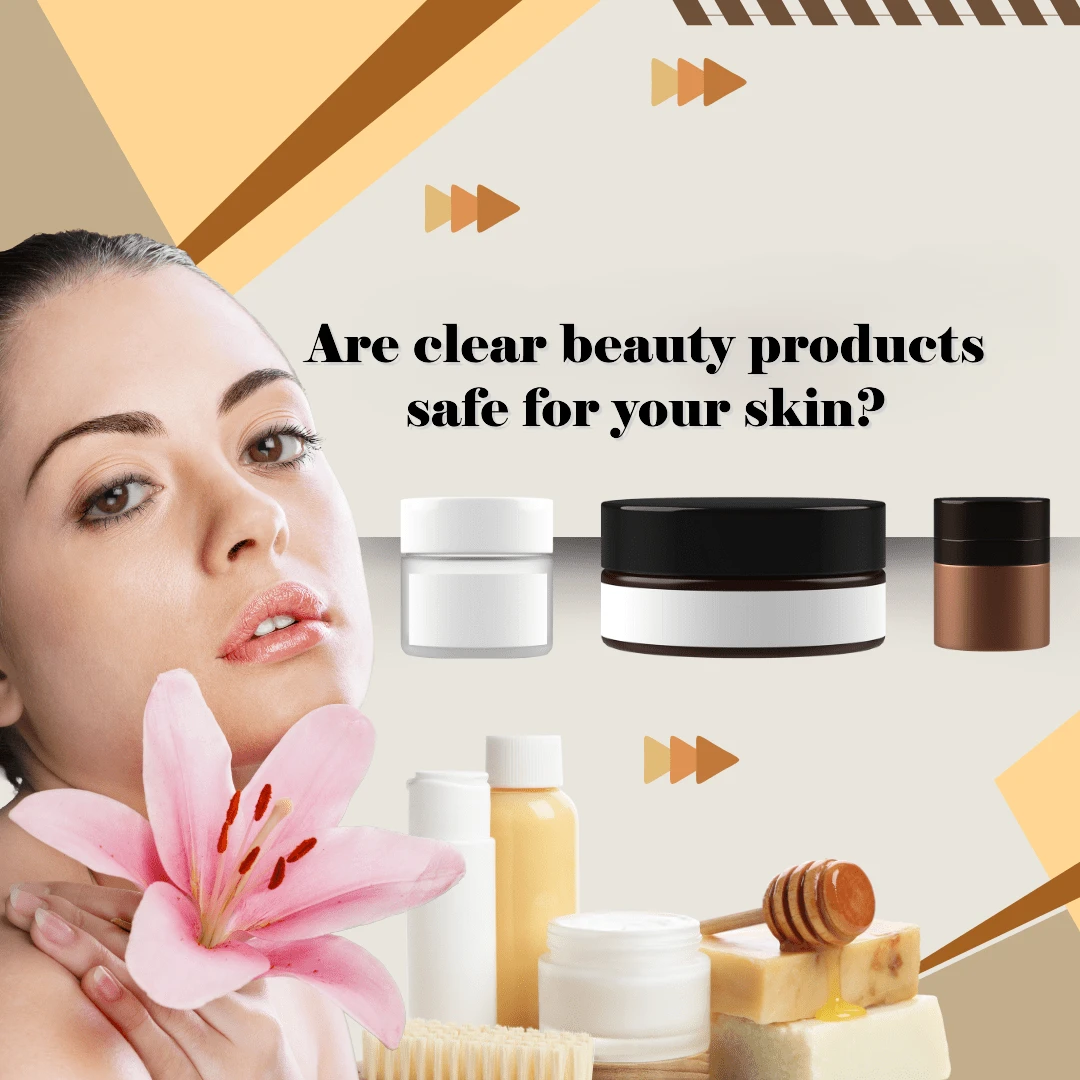Are clear beauty products safe for your skin?
Are Clear Beauty Products Safe for Your Skin?
Clear beauty products—transparent or minimally formulated skincare items often free from dyes, fragrances, and harsh chemicals—have gained popularity for their "clean," minimalist appeal. But does being "clear" or “free-from” automatically make them safe or suitable for all skin types?
Understanding Clear Beauty
The term “clear beauty” isn’t a regulated label but generally refers to skincare and cosmetic products that avoid unnecessary additives, colorants, and synthetic fragrances. These products often aim to be non-comedogenic (won’t clog pores), hypoallergenic, and formulated for sensitive or acne-prone skin. However, just because a product looks clear or is marketed as “clean” doesn’t guarantee it’s the best choice for every skin type.
Pros of Clear Beauty Products
-
Fewer Irritants
Clear beauty products often avoid common irritants such as artificial dyes, parabens, sulfates, and synthetic fragrances. This can be beneficial for sensitive skin or those prone to eczema, rosacea, or allergic reactions. -
Gentler on Skin
With fewer ingredients, the likelihood of a reaction can decrease. Simpler formulations are often better for individuals with compromised skin barriers or conditions like dermatitis. -
Transparency and Simplicity
Many clear beauty brands are transparent about their ingredients and aim to simplify skincare, helping consumers avoid unnecessary layering of too many actives or chemicals.
Possible Downsides
-
Not Always More Effective
While clear products may be free from irritants, they may also lack active ingredients like retinol, peptides, or exfoliating acids. If you're targeting specific concerns like aging, acne, or pigmentation, clear beauty products might not be potent enough on their own. -
"Clear" Doesn’t Mean Non-Reactive
Natural or "clean" ingredients can still cause reactions. For example, essential oils, though natural, can irritate sensitive skin. Just because a product is minimal doesn't mean it’s universally safe. -
Lack of Regulation
There’s no universal definition or regulation around “clear” or “clean” beauty. As a result, some products may market themselves as such while still containing questionable or unhelpful ingredients.
How to Choose Wisely
-
Check Ingredient Lists: Look beyond marketing claims. Ensure the product contains ingredients that match your skin's needs.
-
Patch Test First: Even if a product is labeled hypoallergenic or fragrance-free, it’s smart to do a patch test, especially if you have sensitive skin.
-
Understand Your Skin Type: Clear beauty may be beneficial if you have reactive or acne-prone skin. However, if your skin is resilient and you're targeting specific concerns, you might need more active formulations.
Conclusion
Clear beauty products can be a safe, gentle option—especially for sensitive or minimalist skincare routines. However, safety and effectiveness still depend on the individual formulation and your unique skin type. Don’t assume that "clear" equals "better" without considering your specific skin goals and sensitivities. The best skincare routine is one that balances safety with effectiveness, and that varies from person to person.

Related Blog
What Causes Oily Skin and Can It Be Managed Naturally? Exploring Root Causes and Gentle Solutions
Aug 2, 2025 by Admin
General
What Are the Signs That You Have Sensitive Skin? Key Symptoms to Help You Identify This Delicate Skin Type
Aug 1, 2025 by Admin
General